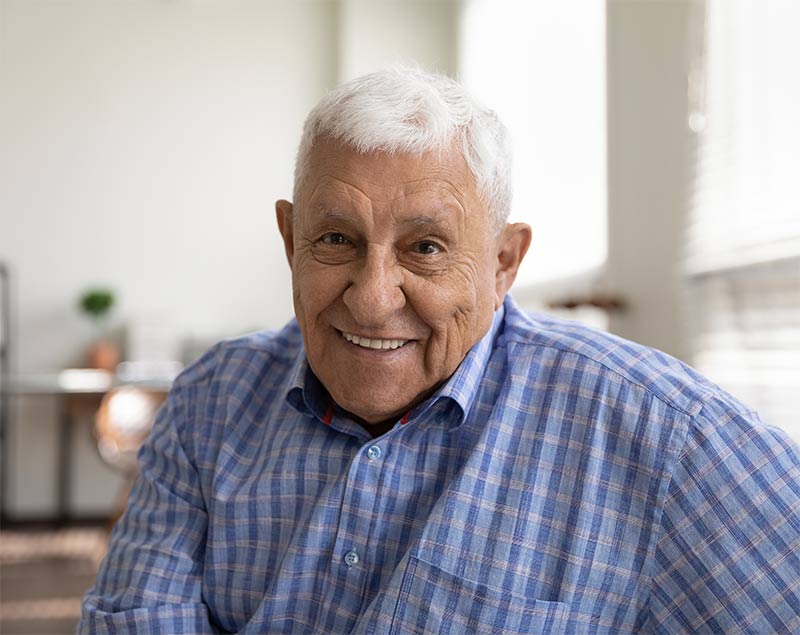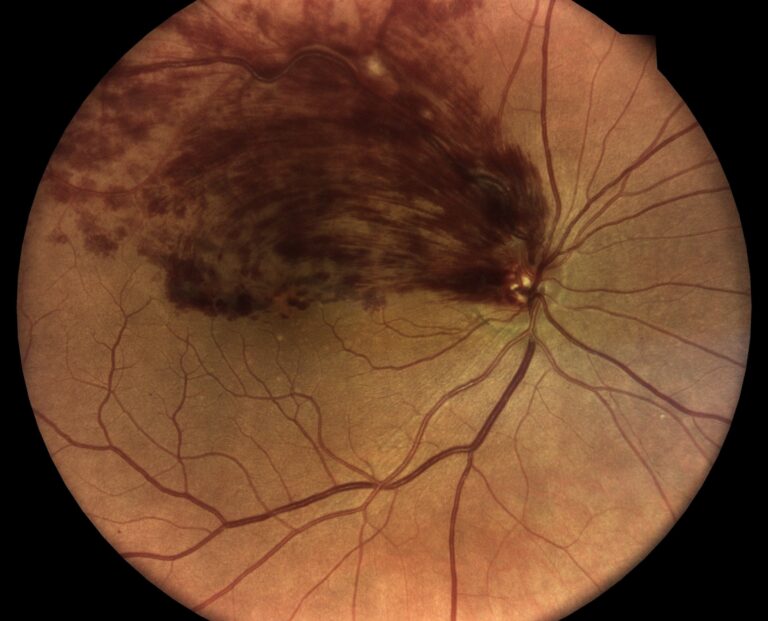Retinal Vein Occlusion (RVO)
Retinal Vein Occlusion (RVO)
Your sight is a precious sense that helps you see the world around you. However, if you have a retina problem, like a retinal vein occlusion, this can put your sight in jeopardy. The talented ophthalmologists at Retina Consultants of Orlando are here to treat these and other retina conditions.

What is a Retinal Vein Occlusion?
A retinal vein occlusion (RVO) occurs when veins in the retina become blocked, usually because of a blood clot. The retina is a light-sensitive layer of tissue found at the back of the eye.
It takes in visual information that it sends to the brain, which gets translated into the images people see. The veins in the retina carry oxygen and blood away from the retina, ensuring it works as it should.
If one of these veins becomes blocked, blood and oxygen cannot flow out of the retina. When blood and oxygen cannot flow out of the oxygen, cells in the retina suffer damage and die.
If a retinal vein occlusion is not treated, this damage to the retina can result in permanent vision loss. There are two kinds of retinal vein occlusions: central and branch.

Central Retinal Vein Occlusion
A central retinal vein occlusion (CRVO) occurs when the primary vein from the retina suffers a blockage, which can lead to the build-up of blood and fluids in the retina. Patients with central retinal vein occlusion may experience vision loss because of this.
Branch Retinal Vein Occlusion
The second kind of retinal vein occlusion is a branch retinal vein occlusion (BRVO). A branch retinal vein occlusion occurs when one of the retina’s smaller veins becomes blocked and cannot carry blood away from the retina.
Because of this, fluid builds up and damages the retina, possibly resulting in vision loss.
Are there any Signs or Symptoms Associated with a Retinal Vein Occlusion?
Patients with retinal vein occlusion may not realize it. Symptoms of this eye condition can include:
If you experience these symptoms, you must see your eye doctor immediately. They will perform a comprehensive eye exam to determine if you have a retinal vein occlusion and if any underlying conditions may be causing or contributing to your symptoms.
Treating a Retinal Vein Occlusion
If you have a retinal vein occlusion, your eye doctor may treat it in several ways. Your treatment options depend on its severity and where the blockage is. Some blockages may resolve on their own without the need for injections or other treatments. However, if your retinal vein occlusion leads to significant vision loss, you may need one of the following treatments:
Corticosteroid Injections
Corticosteroid injections are injected directly into the eye to help reduce swelling and inflammation in the retina. You may need to receive repeated injections for the best results.
Anti-VEGF Injections
Anti-VEGF injections target the vascular endothelial growth factor to help reduce swelling and improve blood flow in the retina. You’ll have anti-VEGF injections in the eye and will likely need repeat injections.
Laser Treatment
Laser treatment is often used to treat retinal vein occlusion. This procedure aims to seal off leaking blood vessels and shrink abnormal ones.
Laser treatment can slow or stop the progression of the disease and preserve vision.
Today, learn more about treating a retinal vein occlusion by requesting an appointment at Retina Consultants of Orlando in Altamonte Springs, FL!
